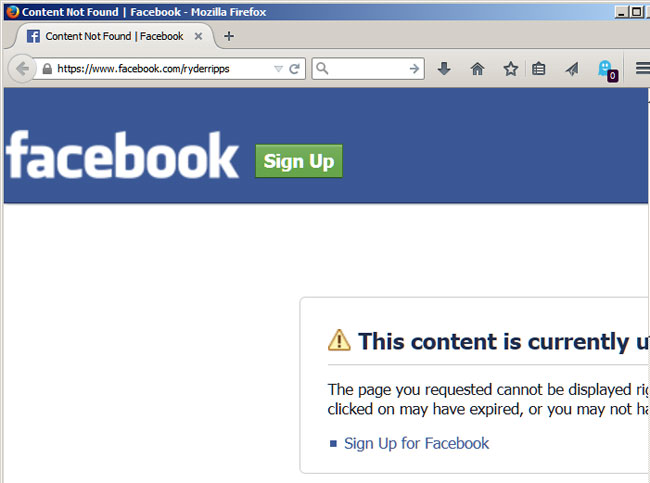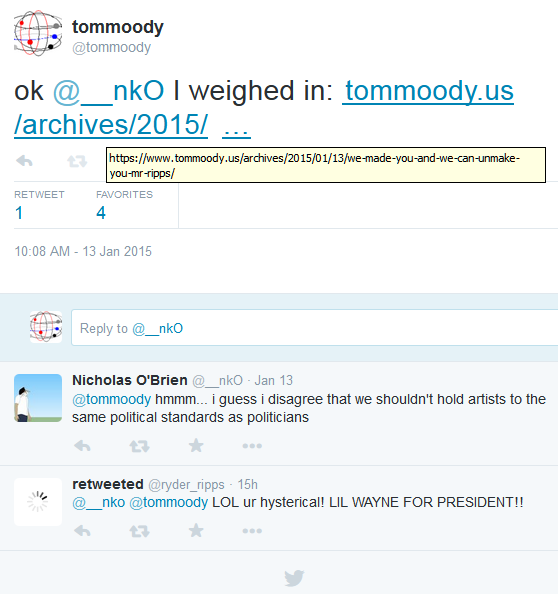Following up on a previous post, "Spare Me Your Private Facebook Rhetoric, Please."
It should be added that back in Nov. 2014, Art F City applied a shocking double standard by liberally screenshotting Ryder Ripps' Facebook account, which is accessible to friends only, and yet scrupulously refusing to copy the complaints against his project from a "private, women-only Facebook group."
They used Ripps' words to his "friends" to try to hang him but spared their friends in the super secret man-haters chamber. Maybe there was some eloquent, well-thought out stuff in the chamber, and they aren't man-haters. We'll never know!
When called on this, Paddy Johnson claimed that Ripps had a "public facebook presence." Interesting convoluted turn of phrase. Here's a screenshot of what I, a proud non-Facebook user, see when I visit that "public" account of Ripps':

That doesn't look very public! An AFC commenter added: "Facebook is obviously now open to everyone." The hell you say.
Way to advertise for Facebook -- more suckers will sign up to read the dirt on Ryder Ripps.
But seriously, if Facebook is going to be the new Artforum or October magazine where weighty art matters are decided (shudder), we better agree on some basic etiquette. Otherwise, it's "to err is human, to screenshot (selectively) is divine."


